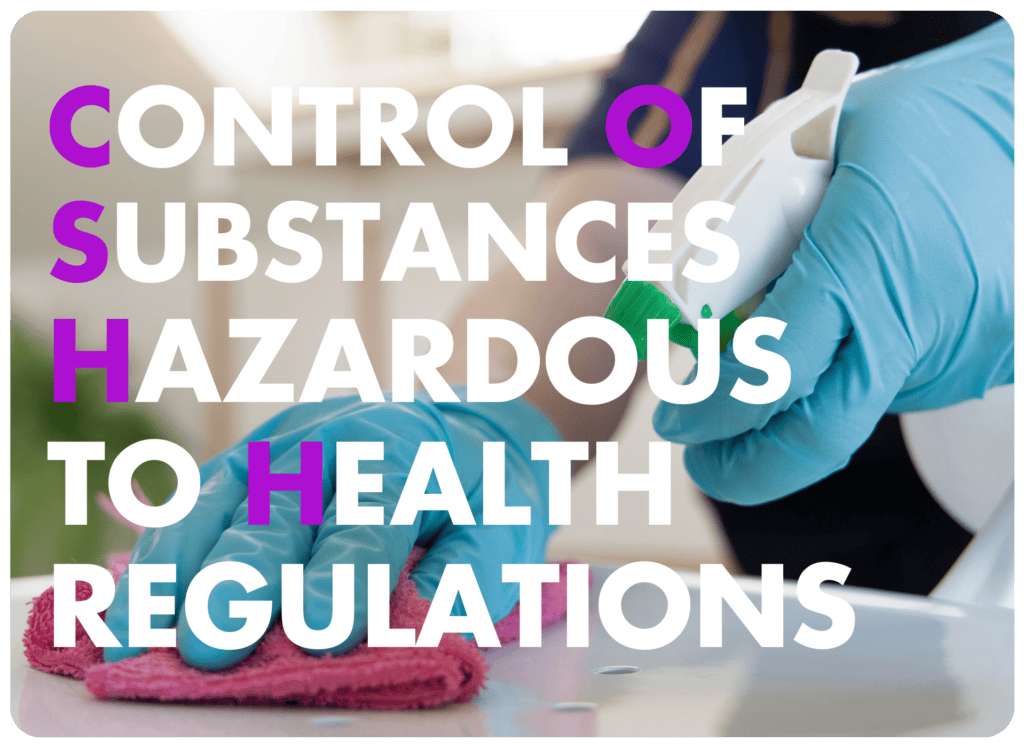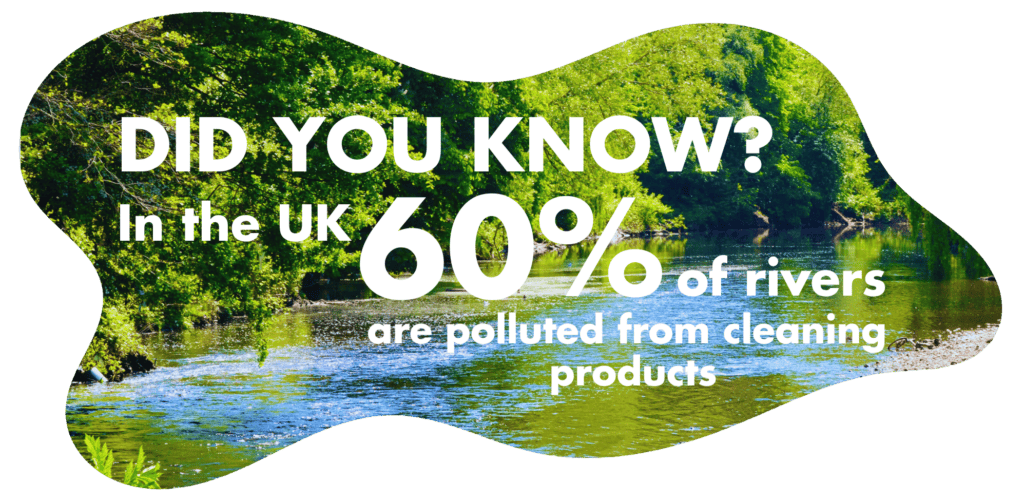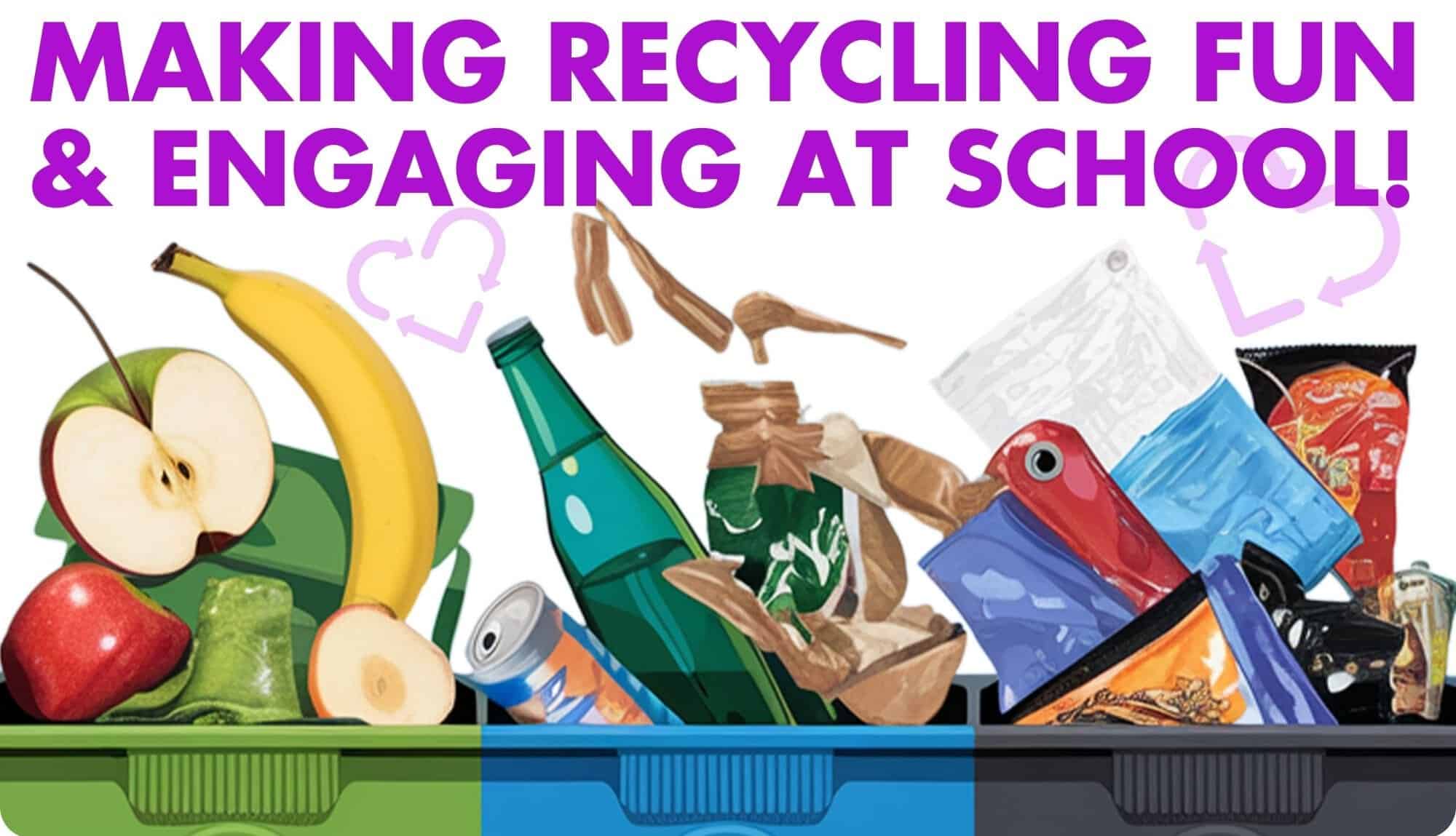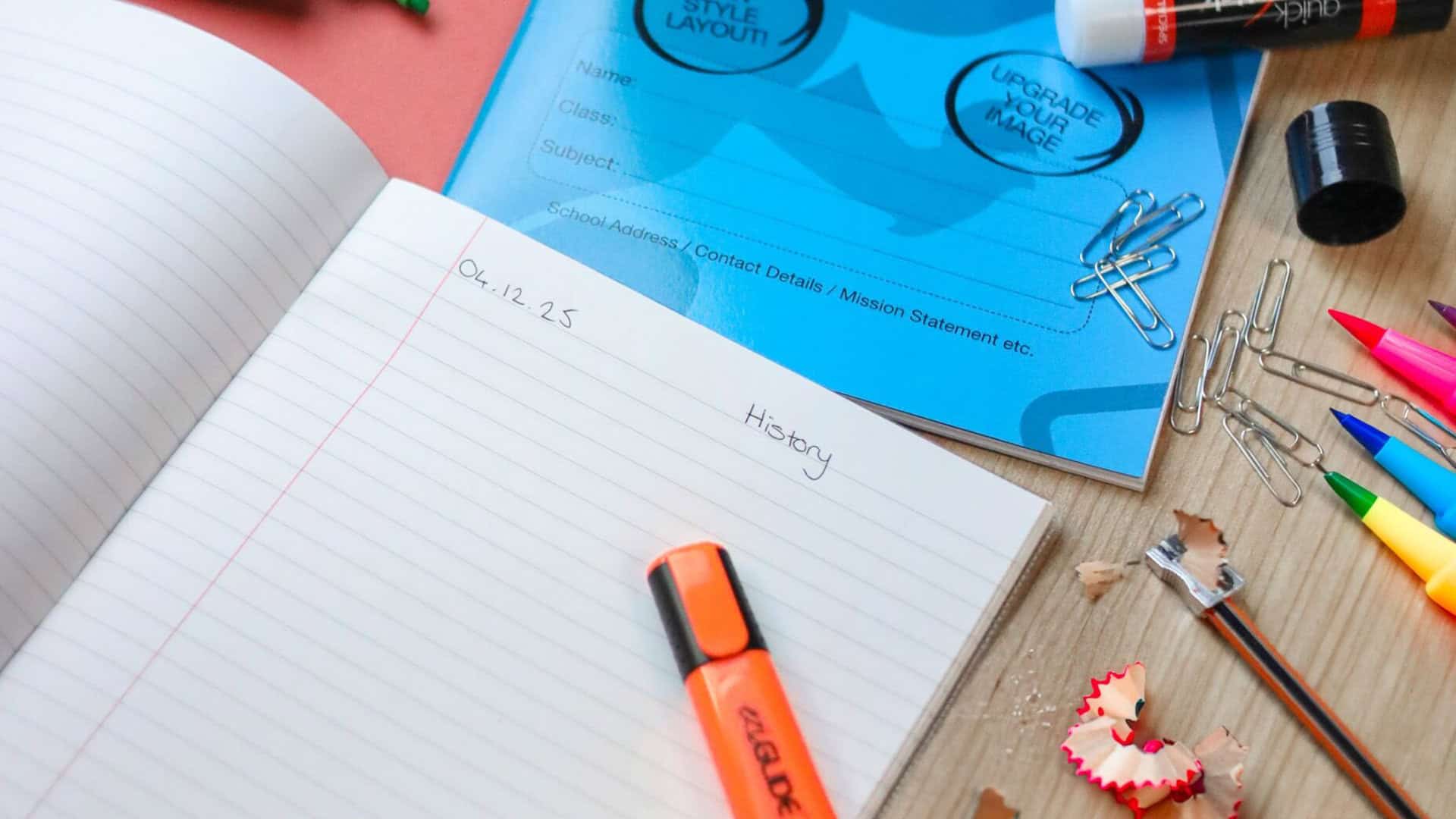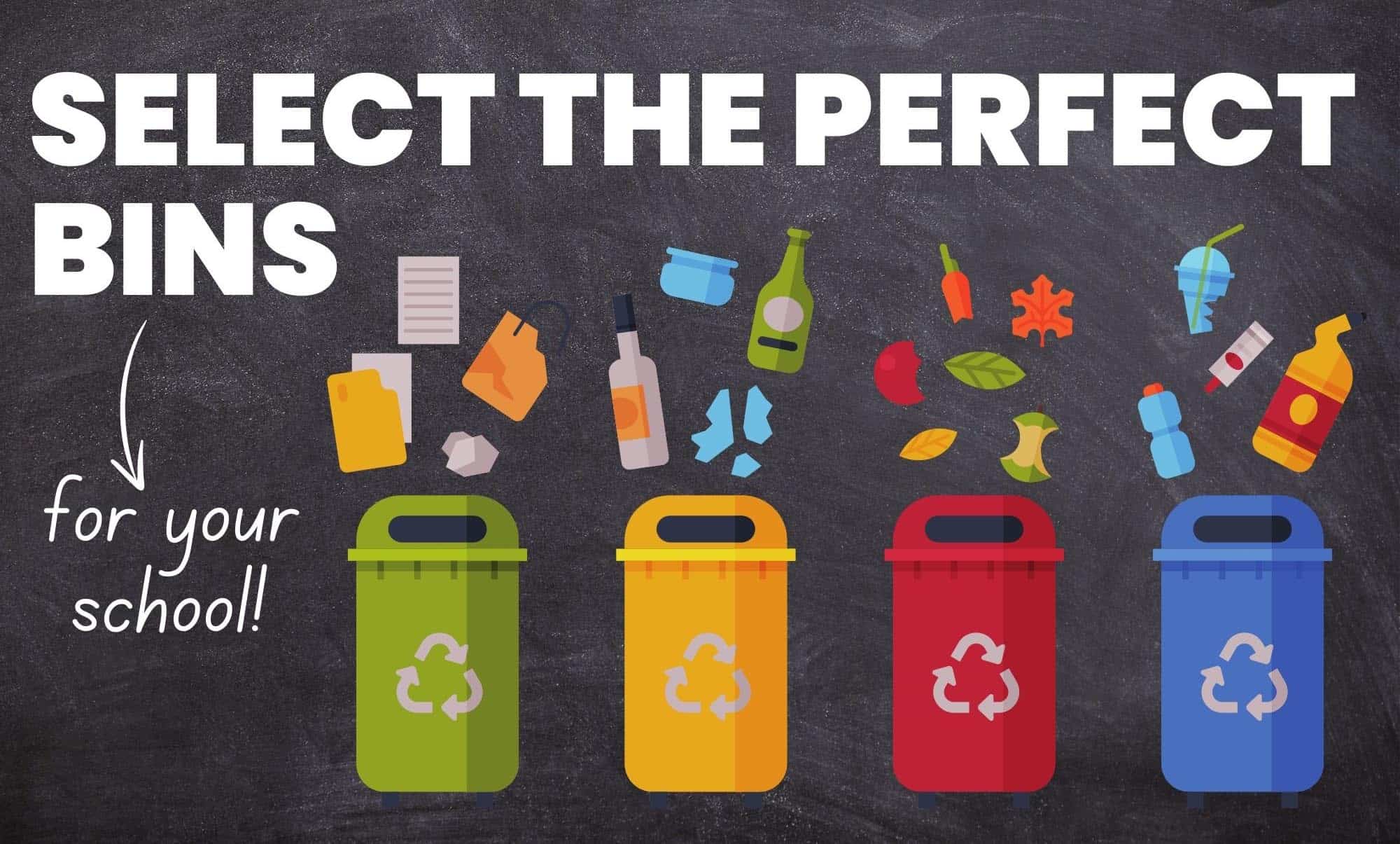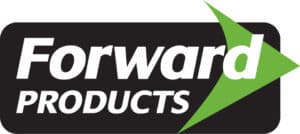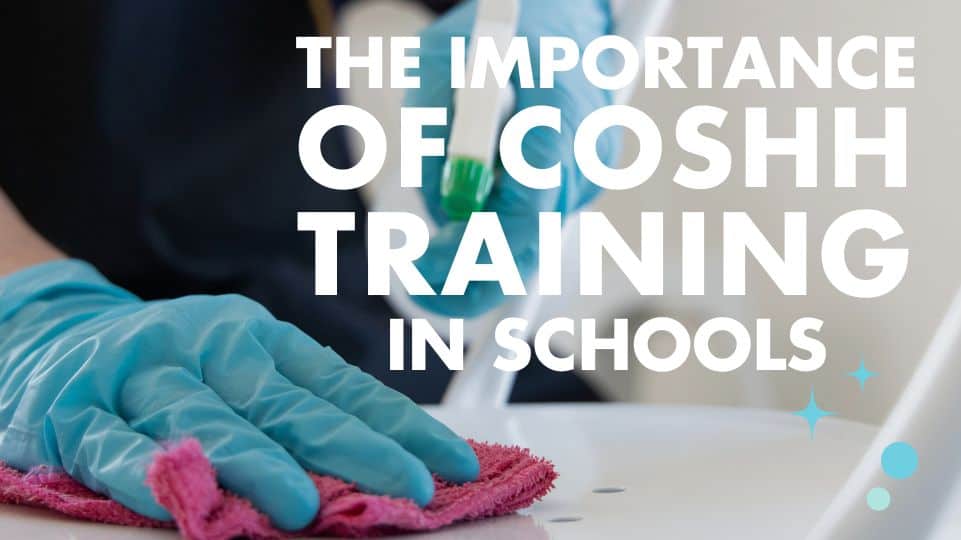
Schools use a variety of cleaning products daily to ensure they create a positive learning environment for students and teachers. These products can include cleaning chemicals which often come with a warning label – chemical exposure can result in array of dangerous side effects including lung problems and skin damage.
This means understanding these labels and the impact of certain substances is key to safety within schools – this is where COSHH training comes in. In this blog, find out what COSHH training is; why it is required in schools and businesses; who may need it; and what you learn during COSHH training.
What is COSHH training?
Firstly, we need to understand what COSHH stands for – Control of Substances Hazardous to Health. It is a set of regulations to protect employees and individuals from harmful substances. Hazardous substances are any products which could cause harm to a person’s health or life, including chemicals, fumes, dusts, vapours, gases, and biological agents.
COSHH training is designed to educate and equip individuals and companies with the knowledge necessary to handle hazardous substances safely and in compliance with regulations.
It focusses on understanding and reducing the risks of hazardous substances (including cleaning chemicals); implementing effective control measures; and ensuring health and safety within your school.
Does my school need COSHH training?
If you come into contact with these chemicals daily for cleaning, or anywhere else within your school, you should have COSHH trained individuals within your team to ensure compliance and safety. You should be able to identify potential hazardous substances, assess risks, implement control measures, and understand emergency procedures.
What cleaning chemicals requiring COSHH training?
Some of the chemicals used in schools which may require COSHH training include:
• Floor cleaners
• Toilet and washroom cleaners
• Degreasers and kitchen cleaners
• Drain cleaners, bleach, and ammonia-based cleaners
• Disinfectants
• Chemicals which require dilution
This list is not exhaustive, and if your school uses other chemicals in science classes, labs, or other areas, it’s likely you’ll need COSHH training for other chemical ranges, too!
Who does COSHH training apply to within?
If your staff are handling, or are exposed to, any of these types of products in their duties, your school and team members may require COSHH training to maintain a safe school and business environment.
This can include cleaning teams using products daily; teachers using chemicals in science and labs; site managers and landscapers using weed killers and pesticides; first aid responders to understand chemical safety protocols; and more.
It is important that key individuals can effectively communicate to other team members the risks of hazards and the control measures in place to manage these.
Three reasons to carry out COSHH training in your school

Safety
COSHH training is not only important for compliance to COSHH regulations and Health and Safety Legislations, but it is key to minimising health risks of students, teachers, and staff. COSHH training helps to reduce the risk of accidents and exposure to chemicals, which can result in skin burns, eye damage, respiratory issues, and more. Educating staff protects from short term harm, caused by accidents, and long-term health problems, due to ongoing exposure, whilst ensuring they can respond quickly and efficiently to chemical related incidents.
Environment
Some chemicals are at risk of causing harm the environment, so need to be disposed of in specific ways to prevent environmental contamination. With the environment and sustainability at the forefront of schools’ future plans, COSHH training helps school learn and adopt practices to promote a healthier environment.
This is also a way to demonstrate to students how their choices impact the future of the planet and to help create a culture of sustainability within your schools.
Efficiency
Understanding the best practice use of chemicals can improve operational efficiency by preventing accidents and the related financial impact, but they can also help to reduce costs by having a better understanding of what products to use, when, and how much.
What will I learn during COSHH training?
The content of your COSHH training will often be tailored to what you use for cleaning in your schools, ensuring you understand the hazards and risks of the specific products you encounter on a daily basis. COSHH training can include:
• The risks associated with cleaning chemicals and incorrect usage
• How chemicals should be stored safely and best practices of chemical handling
• Understand the different chemical symbols and what they mean
• Review what PPE you should be using and why
• The importance of colour coding and how to do it efficiently
• The Dos and Don’ts of using chemicals and hazardous substances
• Best practices on managing chemical spills and incidents
• And more!

Implementing COSHH training in schools will give you the confidence that your students and staff are safe and protected from the risks of hazardous cleaning chemicals and products. You will understand how chemicals are used, stored, and managed optimally, and how to protect the environment whilst promoting efficiency.
If you’d like to find out more about how you can get your team COSHH trained, or to learn about which products you use require COSHH training, get in touch our expert cleaning and hygiene team. We are here to answer the questions that make cleaning and hygiene solutions simple and safe. Call us on 01527 878348 or email us at sales@forwardproducts.co.uk


